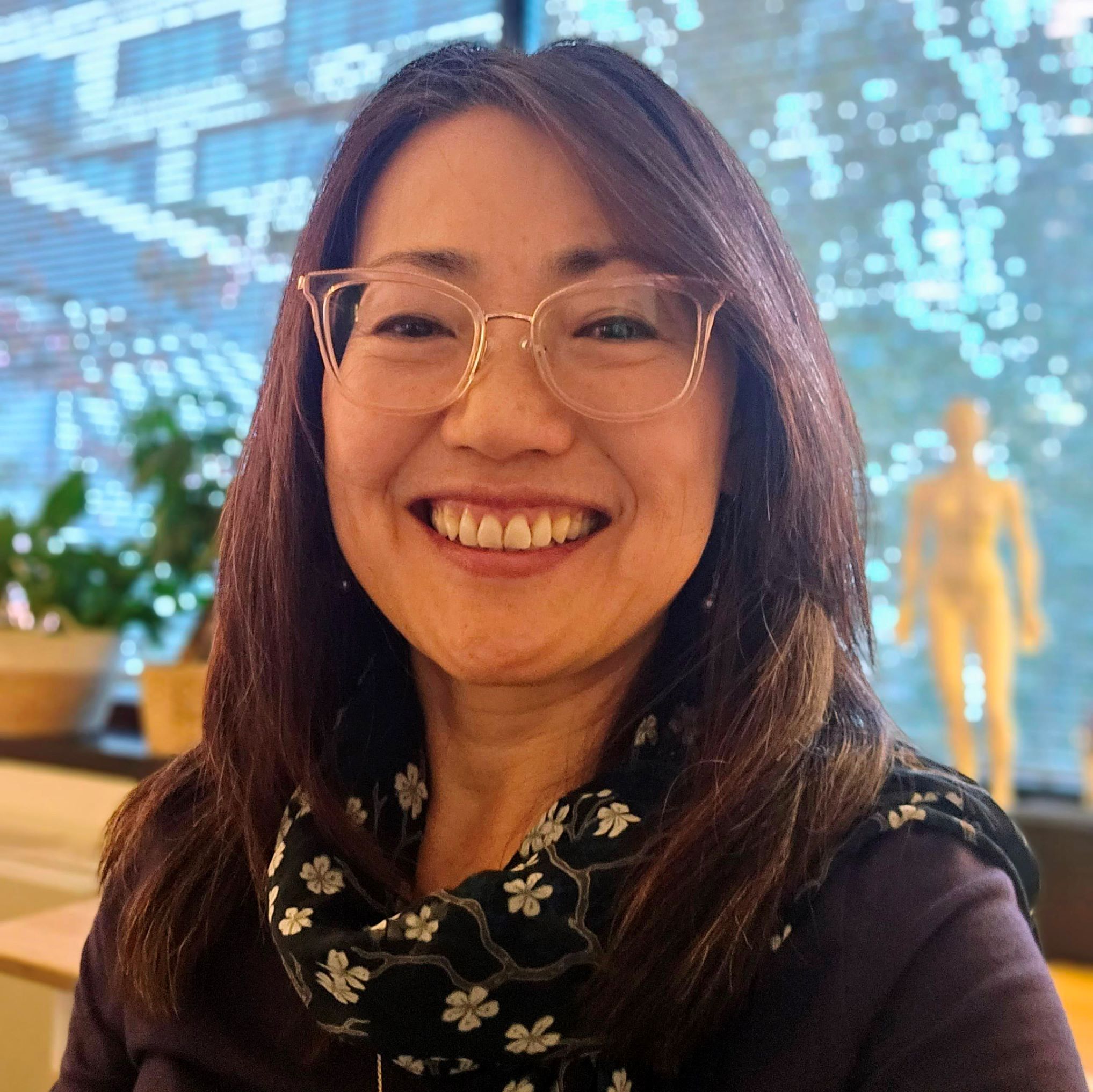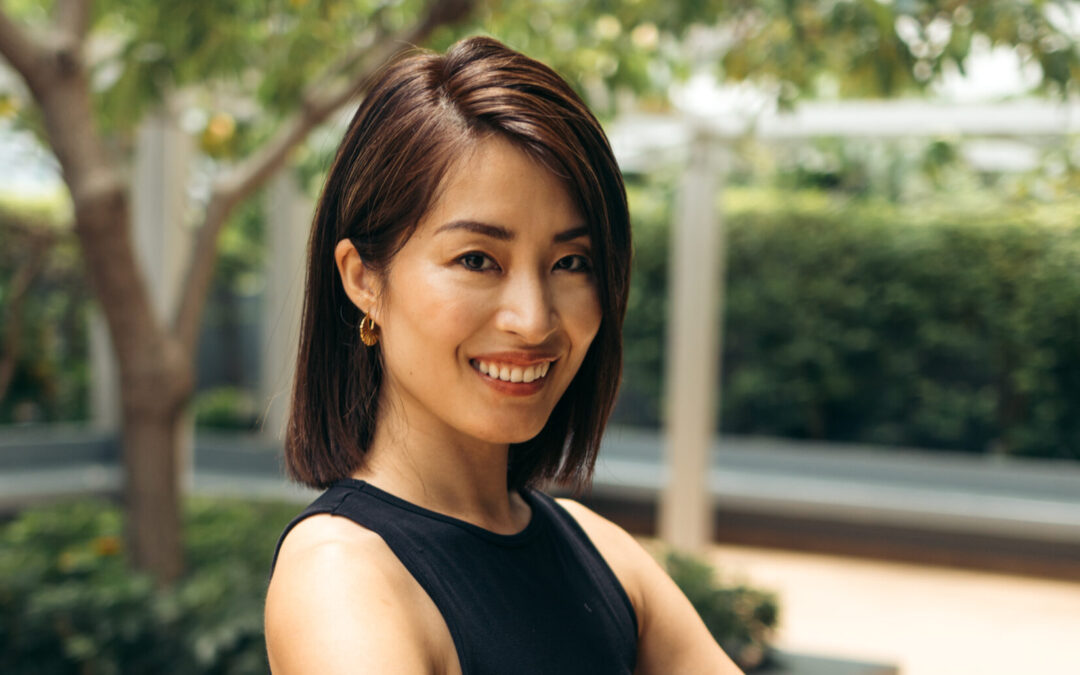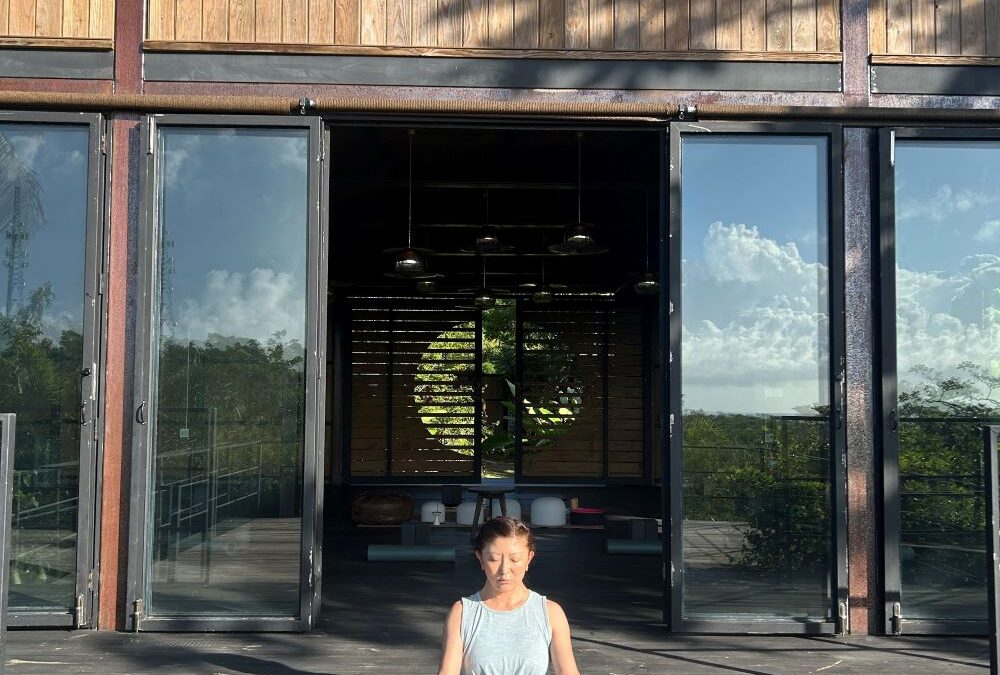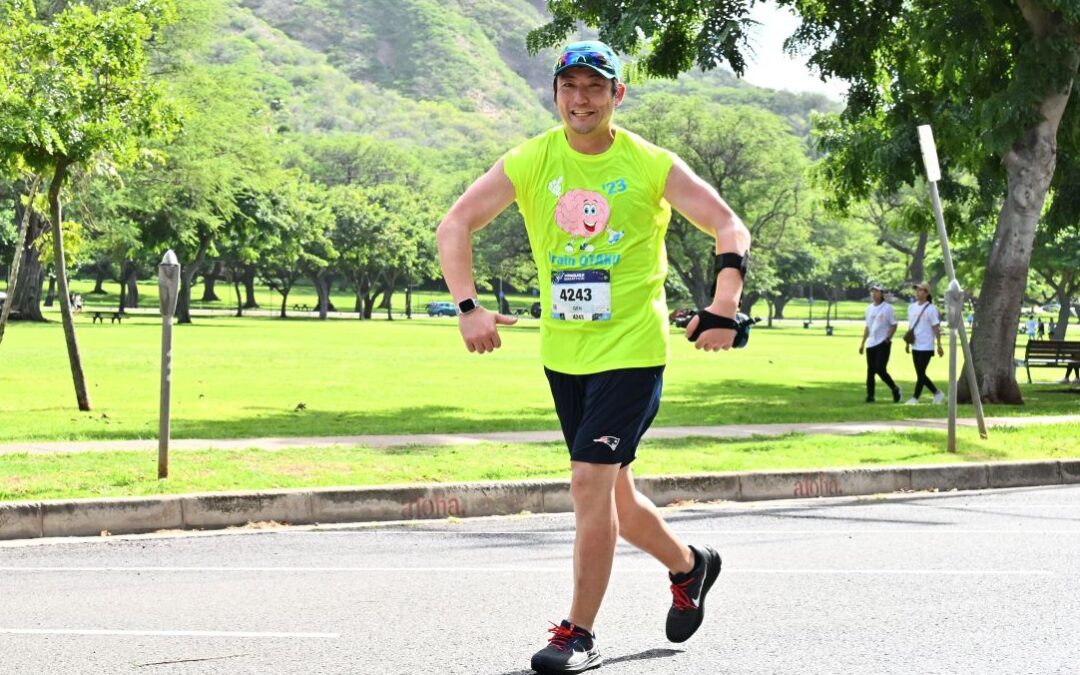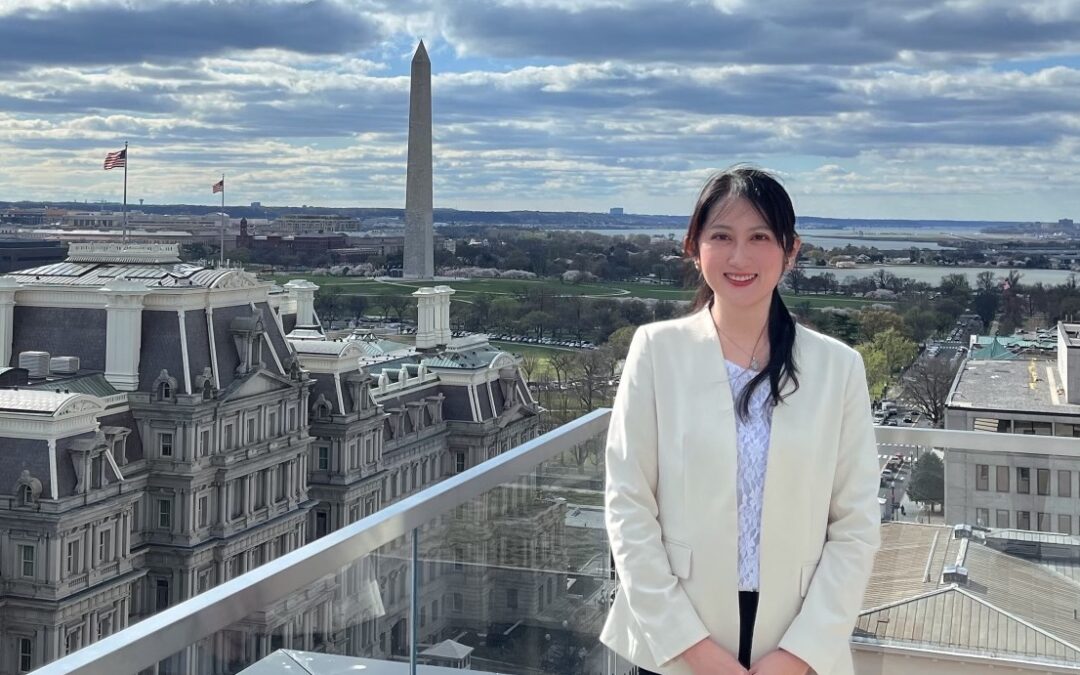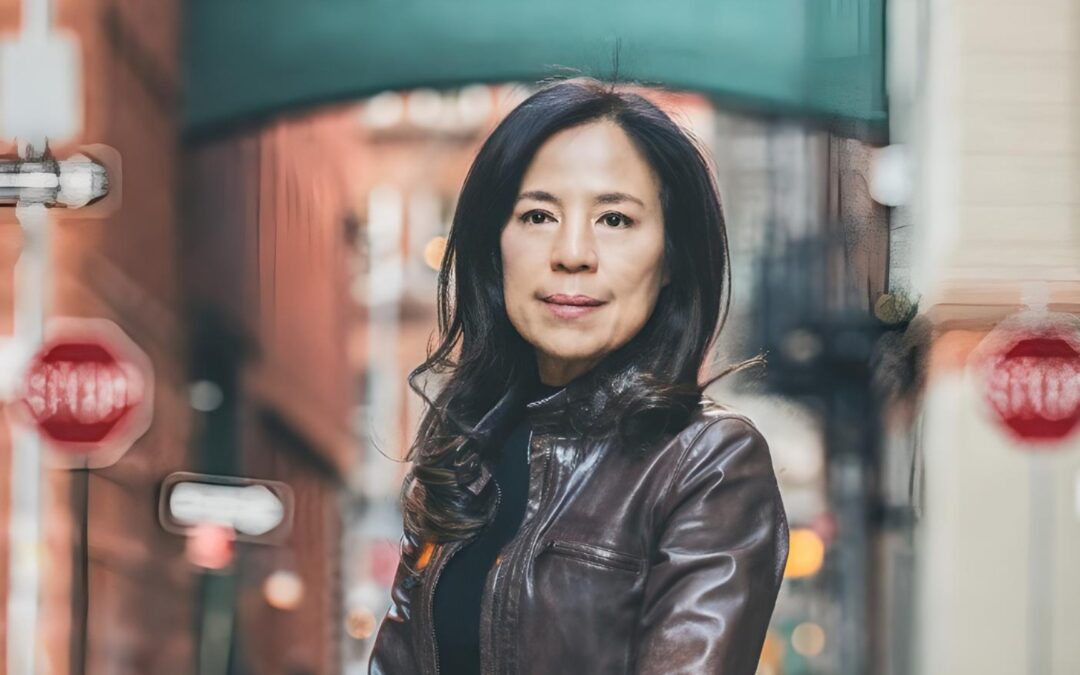This time we introduce Etsuko Maruoka, an acupuncturist in Maryland.
1. Please tell us how you came to the U.S.
I have been interested in foreign cultures since I was a child, and I liked listening to Western music and studying English. When I became an adult, I was working as a nurse in a hospital and I had an opportunity to work in Sri Lanka as an international aid worker through the Japanese Red Cross Society, which I found very rewarding. I wanted to study nursing and health care in English and work in the world, so I came to the US to study abroad.
2. Can you tell us about your current job and how you got there?
I was a nurse for a long time, but I changed direction after qualifying as an acupuncturist, and last February I opened an acupuncture clinic called Clear Spring Acupuncture. I am currently running that clinic all by myself.
The way to qualify as an acupuncturist in the U.S. varies by state, but I studied at a graduate school in Maryland.After obtaining my certification, I considered either working with other acupuncturists or working for hire.However, ever since my training began, I had hopes that once I was a licensed acupuncturist, I would spend all of my clinic time with one patient at a time, so I decided to start my own clinic to fulfill my ideal work arrangement.
3. What inspired you to do the work you do?
I think my parents' interest in traditional Eastern medicine was the root of my work. From a young age, I watched my parents perform moxibustion and my father would take me to a Chinese herbal medicine shop whenever I got sick. While I was a nurse, I met an acupuncturist who is still seeing me today. His acupuncture treatment gave me emotional support when I had problems. I felt that I wanted to go down that path myself, but I was already in my 50s at the time, so I was scared and hesitant about changing direction. One day, while reading a magazine in the waiting room of an acupuncture clinic, I read an article that said, "The ultimate purpose of acupuncture is to help the mind and body gradually adjust to the individual's purpose in life," and it moved me. I noticed that through acupuncture treatment I had become clearer about what I wanted to do, so the article shocked me, and I decided to pursue a career as an acupuncturist.
4. What do you enjoy about the job? And are there any difficulties?
Through this job I help my patients improve their health, and the most exciting moment is when they notice a "positive change" along the way. There are changes in many aspects. For example, they sleep better, their pain is lessened, they feel better, and so on. I do not think that I am doing anything directly, but rather acupuncture helps the patient's symptoms improve and the patient's own natural healing power is enhanced. The greatest joy of my job is to be in contact with patients the moment they experience this change. I enjoy doing this work every day.
On the other hand, setting up a business from scratch was very difficult because I had no experience. From setting up the legalities and finding a place to rent, to getting everything I needed, each step was a learning experience. It is still a constant challenge for me.
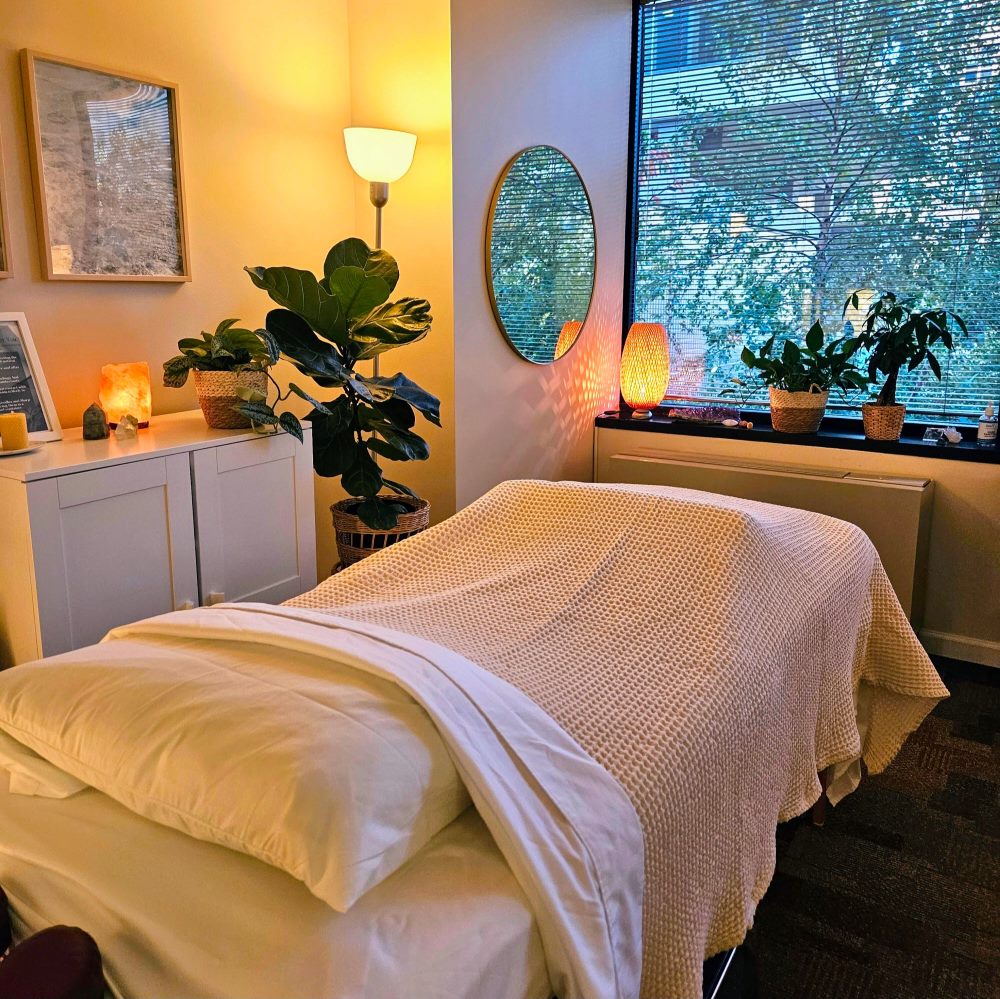
5. Please tell us about any difficulties you have had living in the U.S..
When I first came to the U.S. it took me a long time to get used to the culture. The language was difficult. Since I did not grow up here, the language has a unique accent, and I often had trouble expressing my thoughts the way I wanted to. I was a lively person when I was in Japan, but I became meeker after coming to the U.S. But after about eight years, I finally started to feel like myself. At that time, I was working as a school nurse helping children in elementary, junior high, and high schools, and I think my worries gradually faded away as I took responsibility for making sure the children were safe and secure at school. It was not easy to go from a completely different culture to a new culture and still be myself in that culture.
6.Are there any opportunities or experiences that you feel you have grown as a person since coming to the U.S.?
I was a school nurse for a long time, and I often received strong responses to things I said. Sometimes I was told, "I don't understand what you are saying at all!” It took a lot of effort to face up to things like that. But by gradually overcoming those difficulties, I came to believe that it's fine if I can do things as my authentic self. I think the most important thing is the motive for what you are doing.
My most treasured experiences have been with children and adults from various backgrounds. I have learned that due to cultural, social, and economic backgrounds, everyone has struggles that only they can understand.I have also learned that everyone has their own unique struggles due to their cultural, social, and economic backgrounds. I now have a greater respect for each person's life, and I think that helps me when I work with patients now. I cherish each patient and always try to listen and treat them with a sense of humility.
7. What are your dreams and goals for the future?
I hope that I am healthy and can continue this job for as long as possible. The understanding of traditional Eastern medicine and acupuncture is becoming much deeper in the U.S., but I think it is still in its infancy. It is my dream that Western medicine and Eastern medicine will complement each other to promote people's health and prevent and treat illness. I hope that acupuncture will become familiar to many people and that they will be able to receive treatment easily. This is my feeling toward society rather than a personal goal. I believe that what I can contribute to society as an individual acupuncturist is the accumulation of my efforts to continue to treat each patient with all my might and do my best so that as many people as possible will feel happy to have received acupuncture.
8. What is your message to Japanese who are in the U.S. and are feeling hesitant because they have not found what they want to do?
I believe that each person has something they should do in life. It may not necessarily be a profession; it may be volunteering, something in the family, or social activities. I think that what I feel strongly in my heart is connected to the meaning of my life and what I should do, so it is very important to believe in that when you feel strong feelings. I also took many risks this time, but I was able to open a new path by stepping forward and trying my best when I felt a strong feeling. When you find something you are strongly drawn to, I hope you will take the first step, even if it is a little scary.
Clear Spring Acupuncture: https://www.clearspringacupuncturemd.com/
★ Interviewer's note
I was a nurse in Japan and have an interest in Eastern medicine, so I listened to Ms. Maruoka's story with a sense of familiarity. The interview was very much about her desire to treat each patient with sincerity and help them get well. I think there are many people who find it difficult to adjust to the culture after coming to the United States. I myself am one of them, but I was encouraged by the advice given by a senior in life through the interview. Thank you very much.
Interviewer: MASAE MÁK

